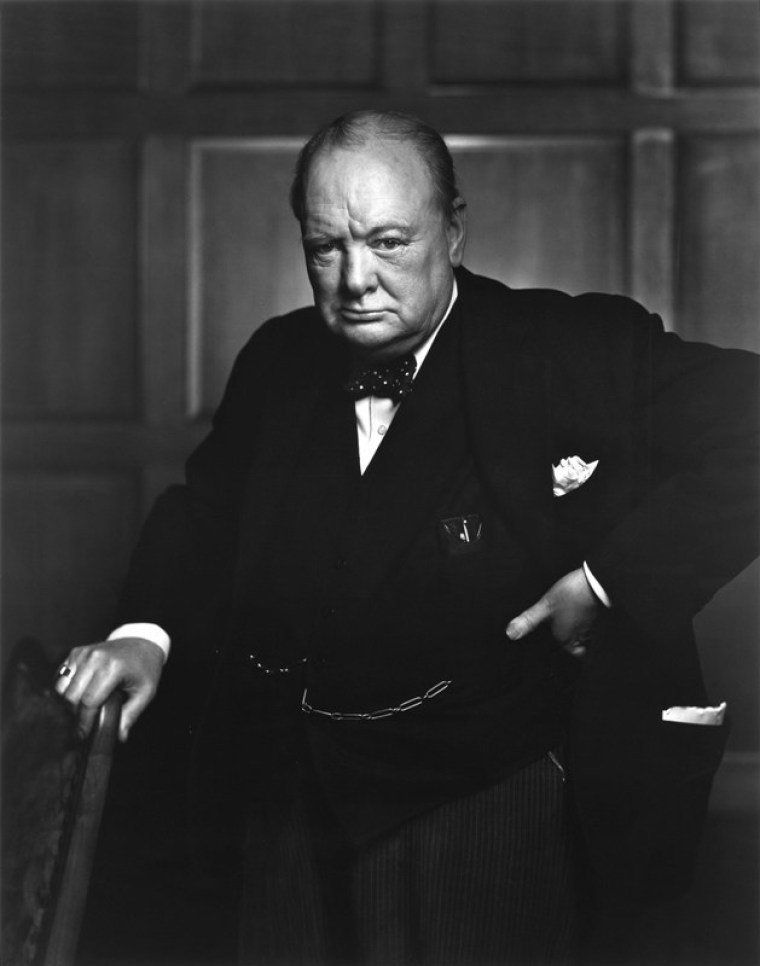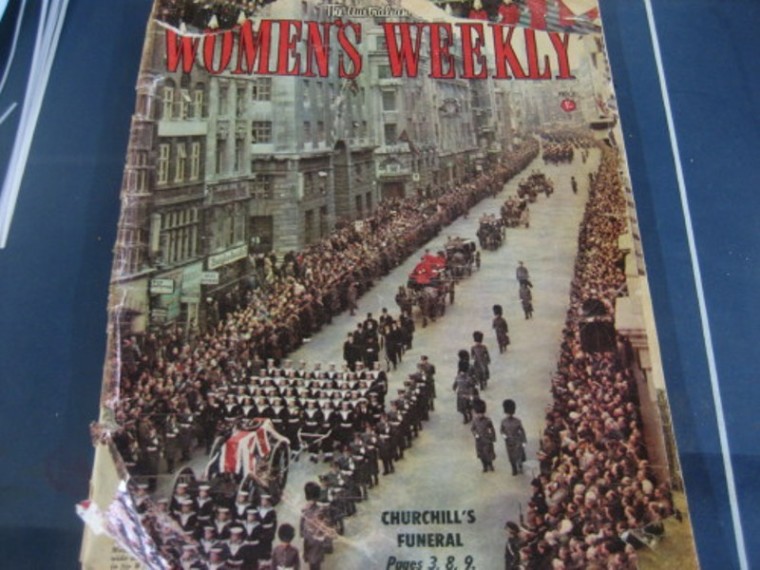
55 years ago on 24 January this year - Sir Winston Leonard Spencer-Churchill, one of the greatest political minds and most remarkable characters of the 20th century, died.
The pre-eminent British statesman famously said of his approach to death: "I am prepared to meet my Maker. Whether my Maker is prepared for the great ordeal of meeting me is another matter."
Winston Churchill was a larger than life public figure when I was growing up during the 1950s. Although he was the wartime Prime Minister of Great Britain, his legends and his pronouncements were well-publicised in the Anglophile Australia of that time. Many adult men of our acquaintance had been overseas fighting during World War II, or had been in ‘protected occupations’ growing food, as my father was; and many children of the time had a parent or grandparent who had come from England, as I did.
I can still remember when 14, the publicity surrounding his funeral on 24 January 24 1965. I was reminded of this State event when I found, in our family archives, a Women’s Weekly article that my late mother had kept. I was not at all surprised about why kept it.
Sir Winston Leonard Spencer-Churchill, KG, OM, CH, TD, PC, DL, FRS who was born on 30 November 1874, was a British politician and statesman and widely regarded as one of the great wartime leaders.
He served as Prime Minister, 1940–45 and again 1951–55 and was noted worldwide for his wonderful oratory skill. Churchill was also an officer in the British Army, a historian, writer, and an artist. To date, he is the only British Prime Minister to have received the Nobel Prize in Literature and although the records state that he was the first person to be recognised as an honorary citizen of the United States, one wonders what this actually means in practice since his mother was an American citizen in any case.
The Australian factor
However, to many Australians, he had another side to his decision-making that was not considered in any way flattering.
His was the architect of the disastrous WWI Gallipoli campaign in April 1915. He refused to accept that defeat became inevitable, even though it was so obvious to those on the ground. Many young Australians can lay their lives at the foot of Churchill's belligerence.
The very same thing happened again in Greece in WWII. Against the wisdom of the Americans, the Commonwealth forces attacked Greece in 1941 with Churchill's idea that such an attack would create a second front. The Whermacht (combined German armed forces) overwhelmed the allies. As a result, many of the Commonwealth troops escaping to Crete, only to be overrun again, when some were successfully evacuated but many became German Prisoners of War.
On such PoW enunciated in a documentary that Churchill had stolen four years of his life.
Japanese threat
But, to the Australians, the worst of Churchill’s decisions almost saw Australia left bereft of its own troops. When Japan was obviously starting to escalate its attacks in the Pacific in 1942, Australian Prime Minister John Curtin's requested that Churchill send home the Australian troops who had been fighting in the Middle East.
Churchill initially ignored the request, and instead diverted them to Burma. Curtin insisted, and as the fleet sailed home across the Indian Ocean where an angry Japanese Navy was searching for Allied targets, Churchill left it without any protection.
The legend of Winston Churchill lies with his 'stand alone' image in the Battle of Britain and his Stirling oratory. Some analysts now see that his strategic skills left a lot to be desired and cost many young Australians their lives at Gallipoli and in Greece and Crete.
In political terms, Churchill could have cost Australia its freedom. John Curtin recognised this and turned to the United States, who by then had a vested interest in protecting the Pacific after the Japanese attack on Pearl Harbor in Hawaii.
Curtin's decision far reaching
As I pondered these things, I could not help but consider how far reaching was Curtin's decision. It accelerated the worldwide dominance of American culture, which came to Australia with the soldiers on Rest and Recreation and personal ties that developed, even before we had the ever present American shows on TV.
One area that I was particularly interested in was a fresh change to evangelism, as exemplified by the “frontier Christianity” that was eloquently exhibited in 1959 with the first Billy Graham Crusade to Australia.
It is 55 years ago that the Billy Graham Crusade occurred and that was for many and in some measure the nation, a pivotal time. Research showed that many Australians became evangelical Christians because of that well-publicised campaign, and that in turn influenced the direction of Sydney evangelical Anglicanism.
I was a young minister at Croydon Park Baptist Church for the 1979 Billy Graham Crusade which made a huge difference to those in the congregation. We saw a plethora of our teenagers come to Christ and one of those young lads was David Robertson, whose own son Tim Robertson is now one of our young writers.
John Curtin could not have possibly foreseen the 'spiritual outcomes' of his decision to stand up to Winston Churchill – neither could anyone else. It is all part of God’s miraculous providential plan.


Dr Mark Tronson - a 4 min video
Chairman – Well-Being Australia
Baptist Minister 45 years
- 1984 - Australian cricket team chaplain 17 years (Ret)
- 2001 - Life After Cricket (18 years Ret)
- 2009 - Olympic Ministry Medal – presented by Carl Lewis
- 2019 - The Gutenberg - (ARPA Christian Media premier award)
Gutenberg video - 2min 14sec
Married to Delma for 45 years with 4 children and 6 grand children